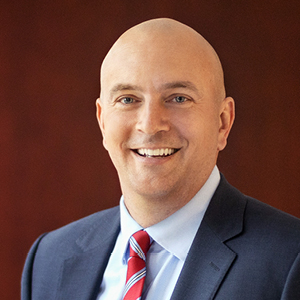When you’ve spent decades planning for your retirement, knowing when to retire is a common and significant question. Deciding when to retire is one of the biggest decisions you make in life. Many people think that if they’ve reached a certain age and saved a certain amount, they’ll be set for their retirement. However, this approach does not account for the expenses they could incur through their lifestyle, health and other factors. Therefore, I think the more important question is “What are my expenses going to look like in retirement – and are they sustainable?”
Retirement goals are different for everyone. Some want to travel the world while others are content to be at home reading a book. There is no right or wrong answer for the right retirement lifestyle. It’s a matter of understanding what is important to the individual, understanding what that will cost and understanding if their investments can realistically meet those goals.
Expense Analysis
When I sit down with prospective retirees I always start with an analysis of expenses. The four components we start with are housing costs, costs of medical coverage, inflation assumptions and longevity. According to statistics from the World Bank in 2020, the average life expectancy in the United States is 77.28 years. Depending on your retirement date you will need income for several years. In order to plan responsibly for retirement, the four critical components of retirement expenses should be addressed before getting into the “leisure activities” one might desire in their golden years.
Determine Your Sources of Retirement Income
Once we address retirement costs, the next step is determining the sources of income to get a realistic idea of what is possible. Sources of income often include Social Security, Pension, rent from the ownership of real estate, retirement plans and brokerage accounts. A seasoned financial advisor will gather all the information and develop a detailed plan for your investment portfolio with responsible assumptions on what that portfolio can produce based on your financial situation and risk tolerance.
The Final Step
Before you make the decision to retire, make sure you have a realistic idea of your costs and an investment plan to sustain your lifestyle for the long run. After all, the last thing you want is to retire at the time you’ve chosen only to find out your retirement expenses will not be sustainable over time. It is important for a financial advisor to respect your wishes while offering practical advice for achieving those goals. Keep in mind that a good advisor will tell you what you need to hear, not what you want to hear, in order to help you reach your retirement goals.
Jason Egge is a Financial Advisor with Securities America, Advisors, Inc. Securities offered through Securities America, Inc., member FINRA/SIPC. Advisory services offered through Securities America Advisors, Inc. Bankers Trust, BTC Financial Services, a division of Bankers Trust, and Securities America are separate companies. Securities America and its representatives do not provide tax advice; it is important to coordinate with your tax advisor regarding your specific situation. Not FDIC Insured. No Bank Guarantees. May Lose Value. Not a Deposit. Not Insured by Any Government Agency.








 Equal Housing Lender. SBA Preferred Lender. NMLS #440379
Equal Housing Lender. SBA Preferred Lender. NMLS #440379